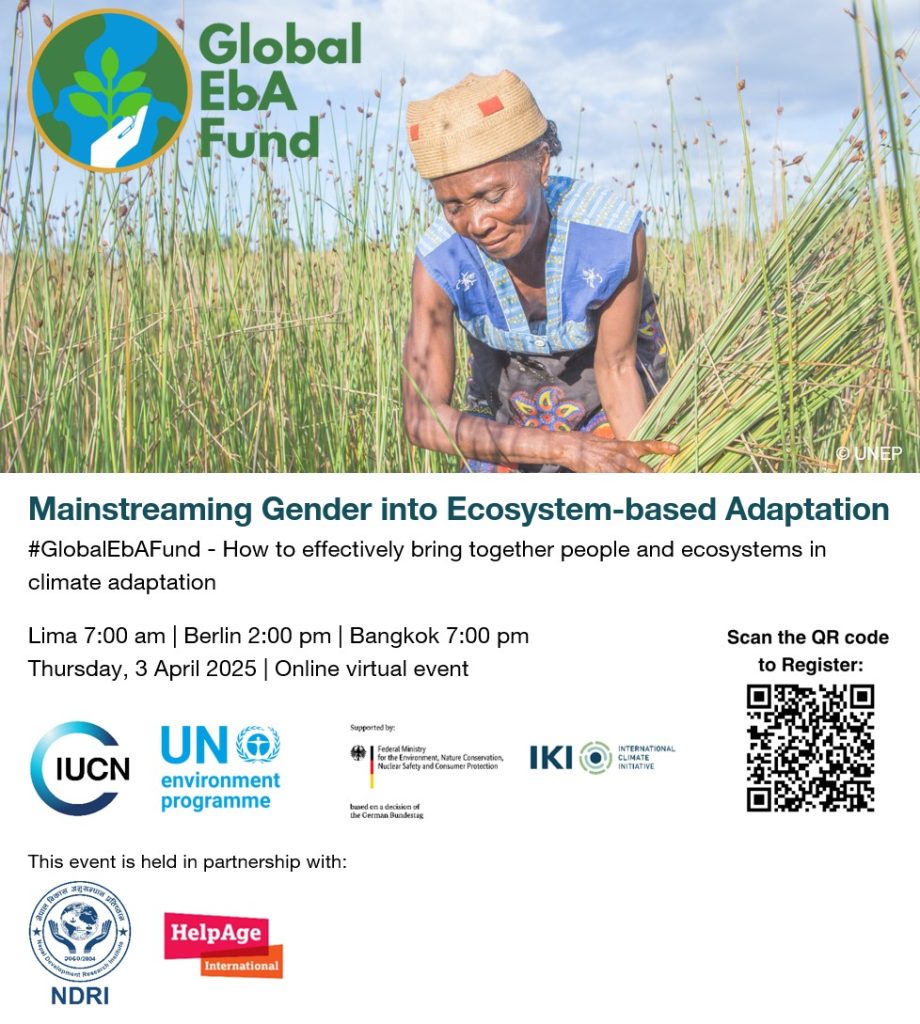Global EbA Fund Gender Mainstreaming Webinar

As part of that mandate of catalytic action, innovation, and inclusion, and especially as it relates to scaling, the questions of how to address societal challenges such as climate change adaptation using ecosystems and nature raises the question of how to effectively engage people as part of that process. Gender norms, roles and relations in particular have a significant impact on access to and agency over resources, information, knowledge and decisions. This results in unequal contributions to addressing the root causes of climate change and poses people to different degrees of vulnerability and resilience to the exacerbating impacts of climate change and biodiversity loss. Hence, exploring these gender relations in the context of EbA is critical in order to understand: What is the role of gender and other identities in the conservation, restoration, and sustainable management of ecosystems to help people adapt to climate change? How do we address the distribution of the costs and benefits of working with nature to address climate change? How can overlooking gender hinder EbA implementation?
The Global EbA Fund Gender Mainstreaming Webinar took place on Thursday, 3 April at 7:00 am Lima | 2:00 pm Berlin | 7:00 pm Bangkok.
Here is what we learned:
❔How to address gender in EbA? The first step is to do a gender analysis.
♀️ ♂️ ⚧️ When we talk about gender, a lot of projects tend to focus on women but it is equally important to engage men and other genders.
📝We need more and more evidence to make sure that women and men benefit equally from the EbA projects we implement.
Nepal Development Research Institute (NDRI):
🏞️ In Nepal when flood strikes the impacts are not felt equally by all – especially pregnant women, elderly women and women with young children face significant challenges in evacuating quickly.
🍃 Due to flood impacts on community forests and the decline in firewood and fodder supply women are more prone to exploitation and gender-based violence.
HelpAge International:
🌪️ All age groups are exposed to climate change, but older people are more affected and in a different way.
🧩 All women and all men are getting older, therefore we need to build intergenerationality into our project activities.
⛔ People face discrimination throughout their life, but in old age discrimination is exacerbated whether it’s on disability, sexual orientation, social class. In old age many women have lower income and may not have the same social security as men.
Want to learn more? Check out the following resources:
